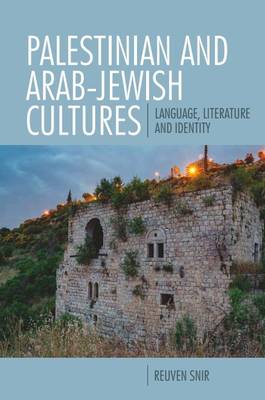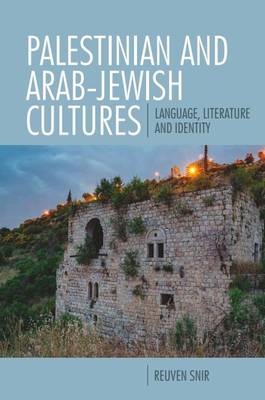
Bedankt voor het vertrouwen het afgelopen jaar! Om jou te bedanken bieden we GRATIS verzending (in België) aan op alles gedurende de hele maand januari.
- Afhalen na 1 uur in een winkel met voorraad
- In januari gratis thuislevering in België
- Ruim aanbod met 7 miljoen producten
Bedankt voor het vertrouwen het afgelopen jaar! Om jou te bedanken bieden we GRATIS verzending (in België) aan op alles gedurende de hele maand januari.
- Afhalen na 1 uur in een winkel met voorraad
- In januari gratis thuislevering in België
- Ruim aanbod met 7 miljoen producten
Zoeken
Palestinian and Arab-Jewish Cultures
Language, Literature, and Identity
Reuven Snir
Hardcover | Engels
€ 173,45
+ 346 punten
Uitvoering
Omschrijving
Part of a two-volume set, this volume examines the issues of commitment and hybridization in Arabic literature concentrating on Palestinian literature and Arab-Jewish culture and the interactions between them. Reuvin Snir studies the contribution of Palestinian literature and theatre to Palestinian nation-building, especially since the 1948 Nakba. Becoming an essential part of the vocabulary of Arab intellectuals and writers, since the 1950s commitment (iltizām) has been employed to indicate the necessity for a writer to convey a message rather than merely create an imaginative work for its own sake. As for hybridization, the author focuses on the role Jews have played in Arabic literature against the backdrop of their contribution to this literature since the pre-Islamic period, and in light of the gradual demise of Arab-Jewish culture in recent years. The blending of elements from different cultures is one of the major phenomena in Arabic literature, certainly in light of its relationship with Islam and its cultural heritage, which has been extending during the last one-and-half millennia.
Specificaties
Betrokkenen
- Auteur(s):
- Uitgeverij:
Inhoud
- Aantal bladzijden:
- 400
- Taal:
- Engels
Eigenschappen
- Productcode (EAN):
- 9781399503211
- Verschijningsdatum:
- 28/02/2023
- Uitvoering:
- Hardcover
- Formaat:
- Genaaid
- Afmetingen:
- 156 mm x 234 mm
- Gewicht:
- 820 g

Alleen bij Standaard Boekhandel
+ 346 punten op je klantenkaart van Standaard Boekhandel
Beoordelingen
We publiceren alleen reviews die voldoen aan de voorwaarden voor reviews. Bekijk onze voorwaarden voor reviews.









